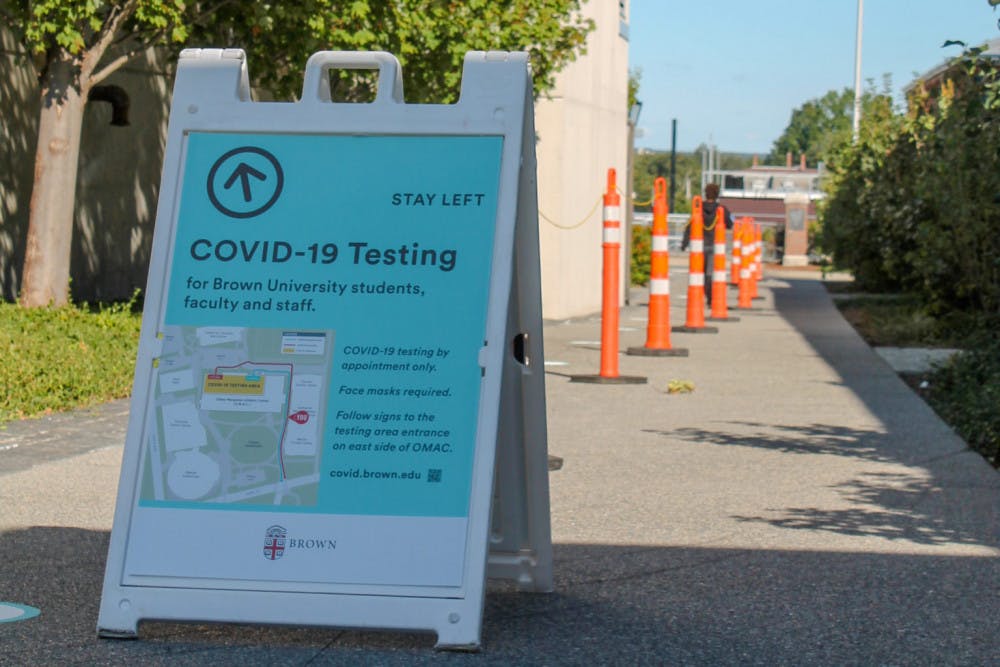The University saw seven positive, asymptomatic COVID-19 cases from Feb. 7 to Feb. 14, according to the Healthy Brown COVID-19 Dashboard. Weekly cases have not been this low since last October when cases dipped to two per week, excluding winter break when testing volumes dropped.
The University currently operates at Campus Activity Level 2, The Herald previously reported.
Given a larger student population this semester than the fall semester, “we've been really encouraged by that strong indication that students are taking the guidance and really protecting themselves from the spread of the virus,” Executive Vice President for Planning and Policy Russell Carey ’91 MA’06 told The Herald.
While increased positivity rates in Providence have correlated with increased rates for the University in previous months, currently “our positivity rates are lower than the community around us,” Carey said.
“Certainly individual actions are critical,” and continuing to participate in the testing program in addition to following other safe practices is “absolutely essential to what we’re seeing and what we hope to sustain,” he added.
The Broad Institute, the University’s testing partner, has increased the threshold level of virus that is classified as a positive COVID-19 result, according to a COVID-19 Testing Update from the University Feb. 12.
In January, the Broad Institute made changes to test processing that allowed for a greater volume of tests to be processed and also made smaller amounts of the virus more easily detectable. The Broad Institute then concluded that “the (prior) threshold was too low” given the increased sensitivity of the tests, Carey said. The change in classification impacts all universities partnered with the Broad Institute.
Some results that were marked as positive under the previous threshold should have been marked as indeterminate, so 17 University community members who received a positive test result that now falls under “indeterminate” have been notified and instructed to retest, according to Carey.
Such low amounts of virus that led to a positive result under the previous threshold may be present because someone was exposed either many days prior to or very recently before the test, according to the update.
Numbers on the Healthy Brown dashboard have been edited to reflect these changes, leading to the removal of a total 15 positive asymptomatic cases between Jan. 21 and Feb. 3.
The announcement made in the COVID-19 Testing Update aimed to “provide the community with a really clear explanation to understand as to why the number of positives we previously reported was dropping,” Carey said.
The previous false positive alerts have caused a disruption to communicating accurate results that is “absolutely regrettable,” he added, but “it’s good that they’ve made adjustments so this won’t happen going forward.”
For students who receive indeterminate results and may be worried that it signals a positive test result, “it’s more often than not (due to) the amount of sample that was collected,” Carey said. Other reasons may be contamination or damage to the vial during the journey from Providence to the Broad Institute’s lab in Cambridge.
“We want to underscore that we have very high confidence in the work that the Broad Institute does, and we’re confident going forward in the quality of the underlying foundation of the testing process,” Carey said.
University community members continue to be vaccinated based on Rhode Island’s age-based priority plan, which currently qualifies faculty members if they are 75 years or older or are employed as health care workers. “They’re still working their way through that first phase,” Carey said. Faculty will likely receive their vaccinations before most students become eligible, he said.
“Based on the current estimates, I would imagine that most students at Brown, particularly undergraduate students, will become eligible during the summer, and if that is sooner, that would be great,” Carey said. There will be a variety of vaccination sites available to those who are eligible, such as CVS and Walgreens, which began distributing the vaccine recently in Rhode Island and will likely expand, he added. Evaluations are still being made about the University directly providing vaccines.

ADVERTISEMENT




